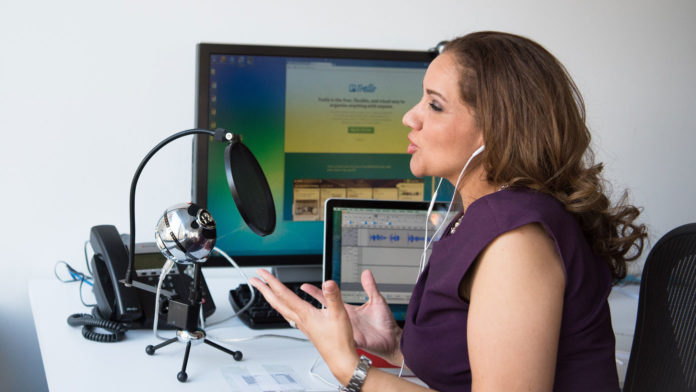Is there a better way to reach more people with the latest research?
Peer-reviewed publications are the standard for sharing research discoveries. They are a written record and analysis of data and the methods used to collect them, put to the test through review by fellow experts in the field. They make a lot of sense in science and engineering.
However, they present barriers to access. They are densely written for a primarily academic audience, and expensive subscriptions are often needed to get a copy. For the humanities, they may not be the best way to start a discussion or spread information to the wider community.
Hannah McGregor, professor of publishing at Simon Fraser University, is an advocate for scholarly podcasts — not to supplement or bring attention to publications, but as an effective standalone format.
“Humanities scholars don’t have data, we have archives; we don’t have findings, we interpret and analyze. This can be done just as well, if not better, in sound-based outputs,” said Hannah McGregor, professor of publishing at Simon Fraser University, in a press release.
To build the tools needed to broadcast scholarly podcasts, McGregor partnered with Stacey Copeland, PhD candidate in communications at SFU, and Siobhan McMenemy at Wilfrid Laurier University Press. Together they launched the Amplify Podcast Network.
Podcasts are simply more fun, drawing in people who are happy to listen in for pure enjoyment. They are open access by default, easily shared online, and can be broadcasted regularly and syndicated through an RSS feed. Fellow experts are also invited to ask questions, adding to the conversation and filling in the aspect of peer review.
Over a third of Canadian adults have tuned into a podcast in the past year, and this popularity continues to grow. Episodes of the podcasts that McGregor hosts — Secret Feminist Agenda and Witch, Please — average 5,000 and 15,000 downloads per episode, respectively.
McGregor’s work also includes developing tools to add searchable metadata to each episode, making them easy to find and access as the catalog grows. The University of British Columbia, Thompson Rivers University, the University of Alberta, Concordia University, and Dalhousie University have all joined the Amplify network.
Podcasts aren’t a traditional medium for scholars, but they boast an impressive reach. McGregor hopes that they can transform the way researchers think about their work and map out a broader audience that they hope to engage from the start. With a framework in place, she also wants scholarly podcasts to gain the same recognition as publications when universities evaluate a scholar’s body of work.
The benefits of research and analysis should be for everyone, and internet audiences are hungry for reputable information. With their wide appeal, podcasts and other non-traditional media are a great way to help scholars reach more people.








































